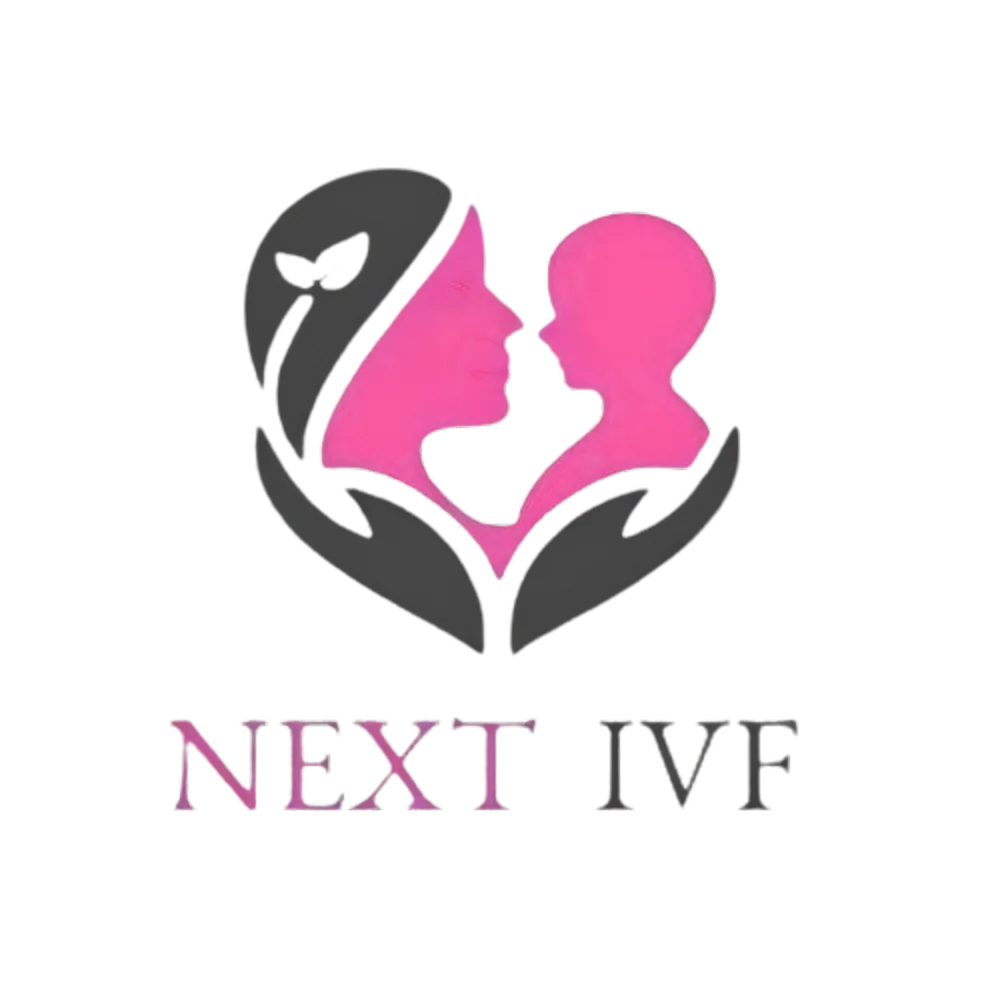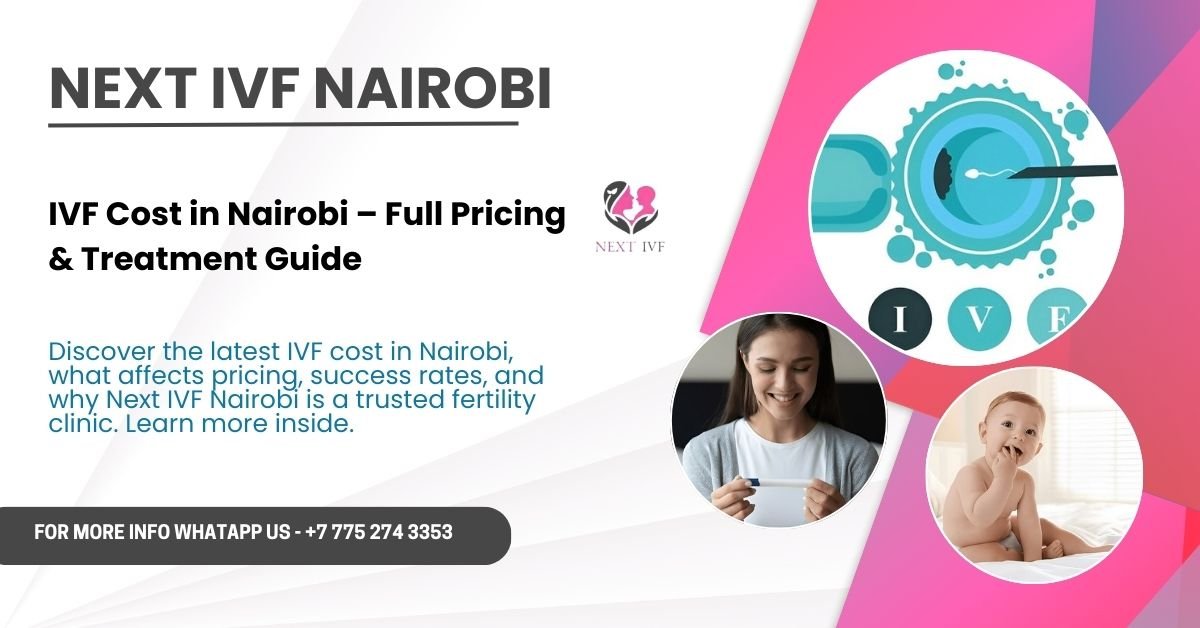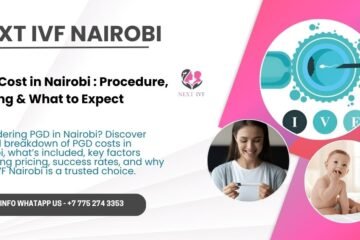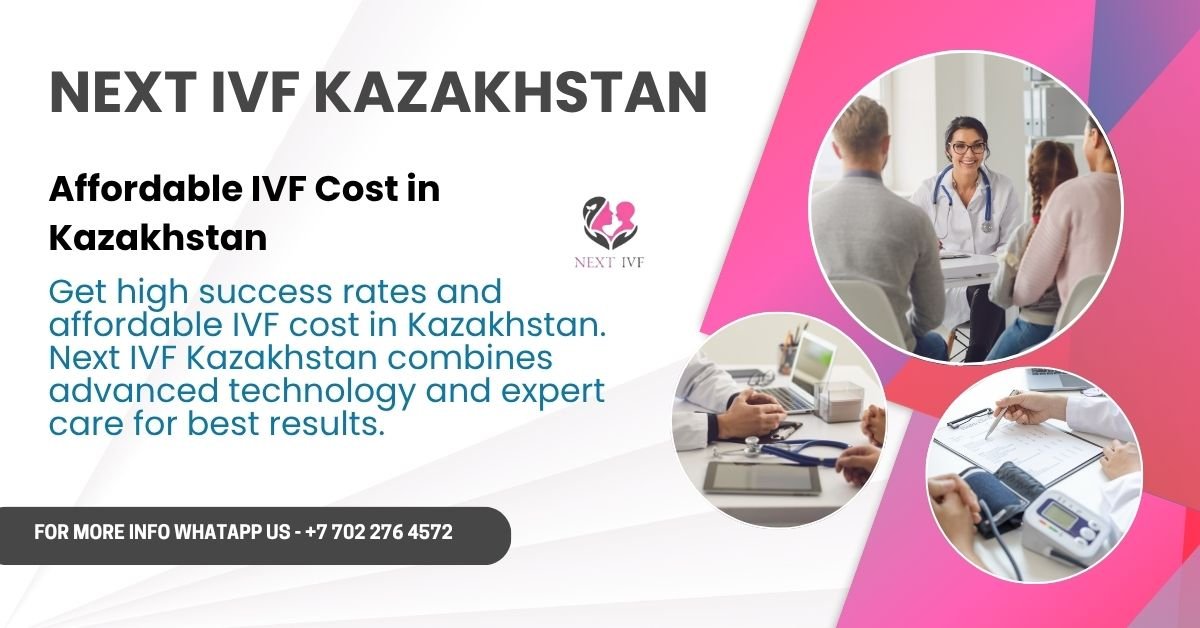IVF Cost in Nairobi
Infertility can be emotionally challenging, but the good news is that there are effective treatments available, including In Vitro Fertilization (IVF). Nairobi, the capital of Kenya, is becoming a leading destination for fertility treatments, especially for couples looking for affordable yet high-quality IVF care. With a growing number of fertility clinics offering world-class services, experienced doctors, and supportive medical staff, Nairobi is now a popular choice for both local and international patients.
One of the key reasons couples consider Nairobi for IVF is the relatively low cost compared to other countries, without compromising on success rates or medical technology. If you’re exploring options for assisted reproductive technology, understanding the IVF cost in Nairobi can help you make an informed decision and prepare for the journey ahead.
In this guide, we will explore everything you need to know about the IVF cost in Nairobi, including what is included in the cost, factors that influence pricing, different types of IVF procedures, top clinics in the city, and frequently asked questions. Whether you’re from Kenya or travelling from abroad, this guide will provide you with a clear picture of what to expect.
What is IVF?
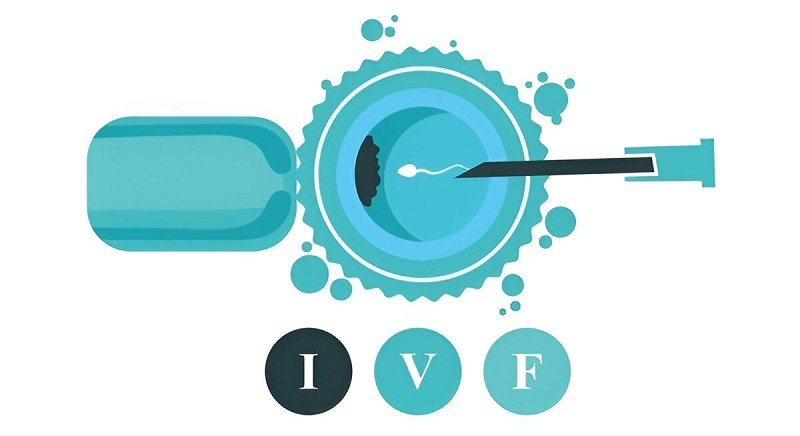
In Vitro Fertilisation, commonly known as IVF, is a medical procedure that helps individuals and couples conceive a child when natural methods have not been successful. The process involves combining an egg and sperm outside the body in a laboratory to form an embryo. This embryo is then transferred into the woman’s uterus with the hope of achieving a successful pregnancy.
IVF is particularly useful in cases such as blocked fallopian tubes, male infertility, unexplained infertility, advanced maternal age, or genetic concerns. It is also a helpful option for single parents or same-sex couples using donor eggs or sperm.
The typical IVF cycle includes several steps: ovarian stimulation, egg retrieval, fertilisation, embryo culture, and embryo transfer. Each step requires careful monitoring and precision to ensure the highest chance of success. The entire cycle usually lasts between three to six weeks.
While IVF does not guarantee a pregnancy in every case, advancements in technology have made the procedure more successful than ever before. Nairobi’s fertility clinics are equipped with advanced laboratories and skilled embryologists who closely monitor each step of the process to increase success rates.
Understanding the IVF process helps patients feel more prepared and confident when starting treatment. With the increasing availability of affordable and quality IVF care, more and more couples in Nairobi and beyond are turning to this life-changing treatment to fulfill their dream of parenthood.
How Does IVF Work?
- Initial Consultation
The process begins with a fertility consultation, where the doctor reviews your medical history, performs tests, and suggests the best treatment plan. - Ovarian Stimulation
The woman is given hormone injections for about 10–12 days to stimulate the ovaries to produce multiple eggs instead of just one. - Monitoring
Doctors monitor the growth of the follicles through ultrasound scans and blood tests to ensure the eggs are maturing properly. - Egg Retrieval
Once the eggs are ready, they are collected from the ovaries using a thin needle in a minor surgical procedure done under sedation. - Sperm Collection
On the same day, a sperm sample is collected from the male partner or a donor for fertilization. - Fertilization
The eggs and sperm are combined in a laboratory. In some cases, a single sperm is injected directly into the egg (ICSI) to assist fertilization - Embryo Development
The fertilized eggs (embryos) are monitored for several days. The best quality embryo is selected for transfer. - Embryo Transfer
The embryo is gently placed into the woman’s uterus. This is a simple and painless procedure. - Pregnancy Test
About 10–14 days later, a blood test is done to confirm if the implantation was successful and pregnancy has begun.
IVF Process Step-by-Step
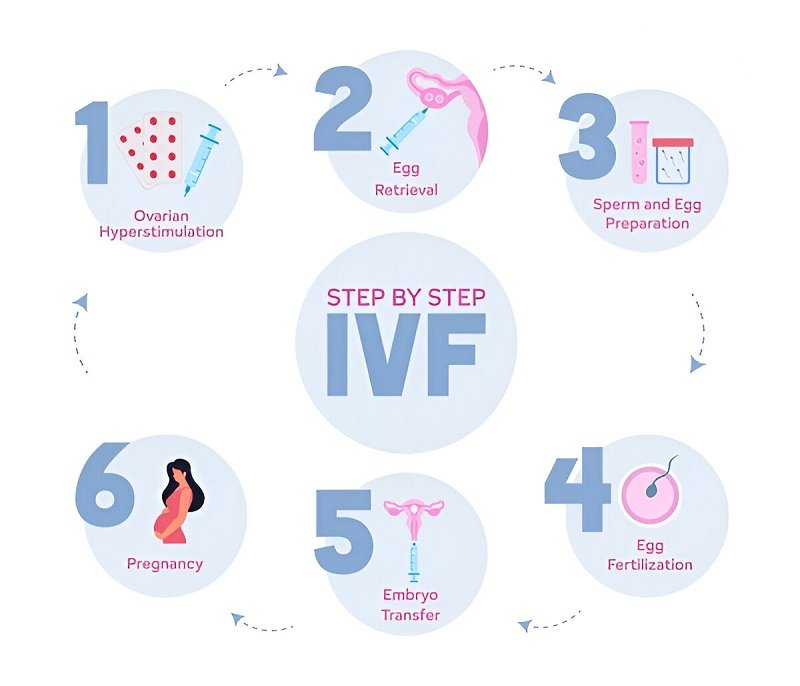
The following table helps you to understand the process of IVF in Nairobi:
| Step | What happens in IVF |
| 1. Consultation | Meet the fertility doctor. Basic tests are done to understand your body’s needs. |
| 2. Hormone Injections | Women take hormone injections for 10–12 days to produce multiple eggs. |
| 3. Egg Retrieval | Eggs are collected from the woman’s ovaries using a small needle (painless with light sedation). |
| 4. Sperm Collection | The male partner gives a sperm sample. Donor sperm can be used if needed. |
| 5. Fertilization | Eggs and sperm are mixed in the lab. If fertilization happens, embryos are formed. |
| 6. Embryo Culture | Embryos grow in the lab for 3–5 days. The best quality embryos are selected. |
| 7. Embryo Transfer | One embryo is placed into the woman’s uterus. It’s a simple and painless procedure. |
| 8. Pregnancy Test | After 10–14 days, a blood test is done to check if pregnancy has started. |
IVF Cost in Nairobi
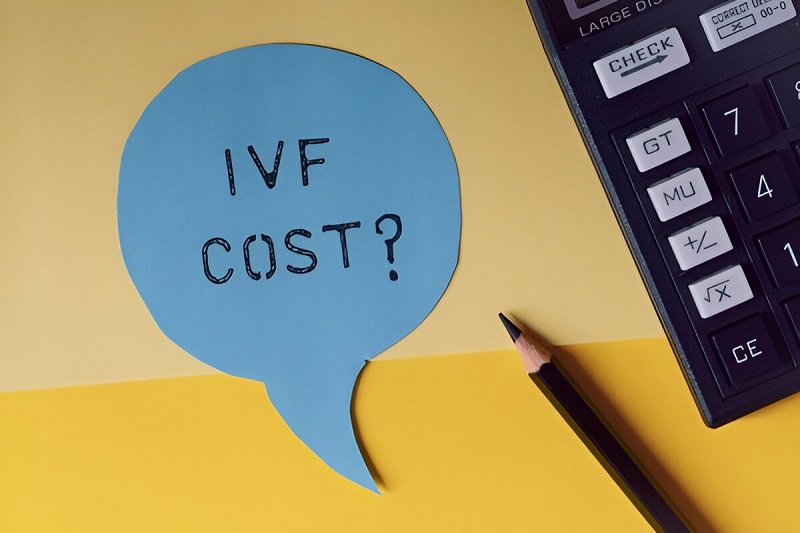
The IVF cost in Nairobi is much more affordable compared to many Western countries, making it a popular destination for couples seeking fertility treatment. On average, the cost of one IVF cycle in Nairobi ranges between KES 400,000 to KES 600,000 (approximately USD 2,800 to 4,200), depending on the clinic, medications, and any additional procedures required (like ICSI, donor eggs, or genetic testing). Many clinics offer personalized packages, installment plans, and high-quality care at reasonable prices.
| Service | IVF Cost (USD) |
| Basic IVF Cycle | $2,800 – $4,200 |
| IVF with ICSI | $3,500 – $4,600 |
| IVF with Donor Eggs | $4,200 – $5,600 |
| IVF with PGD/Genetic Testing | $4,900 – $6,300 |
| Frozen Embryo Transfer (FET) | $1,050 – $1,750 |
| Medications (variable) | $700 – $1,400 |
The following is the table of expenses involved in the procedure of IVF packages at Next IVF Nairobi:
| Other Countries | Cost Range (USD) |
| IVF Cost in India | 1,500 – 3,000 |
| IVF Cost in UAE (Dubai) | 4,000 – 7,000 |
| IVF Cost in USA | 12,000 – 15,000 |
| IVF Cost in Russia | 3,000 – 6,000 |
| IVF Cost in Turkey | 3,500 – 6,500 |
| IVF Cost in Ukraine | 2,500 – 5,000 |
Factors Affecting IVF Cost in Nairobi
1. Type of IVF Procedure
The basic IVF procedure is relatively affordable, but when advanced techniques are added—like ICSI (where a single sperm is injected directly into an egg), assisted hatching, or PGD (which tests embryos for genetic issues)—the cost increases. These advanced methods improve success chances for certain patients but require additional laboratory steps and expertise, which add to the overall bill. Patients should consult their doctor to know if they truly need these techniques or if basic IVF will be enough.
2. Use of Donor Eggs or Sperm
Sometimes, couples need donor eggs or sperm due to medical conditions like low egg quality or male infertility. In such cases, clinics must source, screen, and compensate donors, which increases the treatment cost. Donor services can also include legal documentation and coordination, especially if the donor is anonymous. While donor IVF cycles often have higher success rates, they require extra planning and add a considerable amount to the total IVF cost in Nairobi.
3. Fertility Medications
Medications are a major part of IVF, especially hormone injections used for ovarian stimulation. The cost varies depending on the dosage, duration, and brand of drugs prescribed. Older women or those with hormonal imbalances may need stronger doses, increasing the price. Some medications are included in the IVF package, while others are charged separately. It’s important for patients to check this with the clinic to avoid surprises and budget accordingly for their treatment.
4. Number of IVF Cycles
One IVF cycle may not always lead to pregnancy. Some couples may require two or more attempts, depending on their age, fertility health, and embryo quality. Since most clinics charge per cycle, the total cost multiplies with each attempt. Some centers offer discounted multi-cycle packages, which can be more cost-effective. It’s essential to keep this in mind and be emotionally and financially prepared for the possibility of needing more than one cycle to achieve success.
5. Clinic Reputation and Doctor Experience
Clinics that have a high reputation and fertility doctors with international experience may charge more. However, their expertise, modern equipment, and higher success rates often justify the cost. Patients are more likely to receive tailored care, honest advice, and advanced techniques in such clinics. It’s wise to choose a clinic based on both affordability and success rates, not just cost alone, as experienced teams can increase the chances of a successful pregnancy.
6. Lab Technology Used
Advanced laboratory equipment plays a vital role in IVF success. Clinics that use high-end incubators, time-lapse imaging, genetic testing facilities, and cleanroom environments may charge more. These technologies allow for better embryo monitoring, improved fertilization, and selection of the best-quality embryos. While it adds to the cost, it also boosts the chances of success, especially in complicated cases. Patients should ask about the technologies used and how they impact treatment outcomes.
7. Extra Services
IVF often involves services beyond the basic cycle. These may include embryo freezing, storage, PGD (genetic testing), or even counseling. Freezing allows patients to use embryos in future cycles, but it adds storage costs. PGD can prevent passing on genetic diseases but requires specialized labs. These services are usually charged separately and can raise the overall IVF bill. Couples should discuss what’s included in the package and which add-ons they may actually need.
8. Support for International Patients
Many IVF clinics in Nairobi welcome patients from abroad and offer extra support like visa help, airport transfers, translators, and hotel bookings. These services ensure comfort but may come at an extra charge. International patients might also spend more on travel and accommodation, which adds to their IVF budget. Clinics that provide full packages for foreign patients make the process easier, but it’s important to confirm the services and their associated costs.
9. Location of the Clinic in Nairobi
The geographical location of a fertility clinic can also influence pricing. Clinics situated in upscale or central parts of Nairobi, such as Westlands or Kilimani, often have higher operational costs, which are reflected in their service charges. On the other hand, clinics located in suburban areas may offer more affordable pricing without compromising on quality. Patients should balance convenience, cost, and quality when choosing where to get their IVF treatment in Nairobi.
Success Rate of IVF in Nairobi

The success rate of IVF in Nairobi is comparable to global standards and continues to improve with advancements in technology. On average, the success rate ranges from 50% to 65% for women under 35 using their eggs. For women over 40 or those using donor eggs, the success rate is higher, often between 60% and 75%, because younger donor eggs improve the chances of success.
This relatively high success rate is attributed to the use of advanced techniques such as ICSI, blastocyst culture, embryo freezing, and genetic screening. Clinics also prioritize individual care, tailoring treatment plans according to each couple’s unique needs and health profile.
Moreover, IVF centers in cities like Lahore, Islamabad, and Karachi follow strict laboratory protocols, maintain quality embryo preservation systems, and provide both medical and emotional support throughout the journey. With experienced doctors and international-standard labs, Nairobi has become a reliable destination for couples seeking successful fertility treatment.
Why trust Next IVF Nairobi?
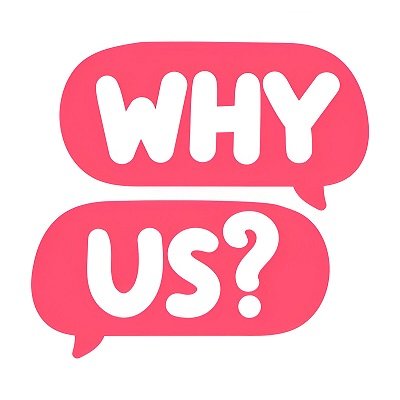
Struggling with infertility can be emotionally and physically challenging, but you don’t have to face it alone. At Next IVF Nairobi, we combine advanced science with genuine care and compassion to help you realize your dream of becoming a mom and dad.
Our centre is dedicated to supporting every couple with personalized fertility solutions tailored to your unique needs. We understand how deeply you desire to start or expand your family, and that’s why our expert team, including IVF specialists, gynecologists, embryologists, and supportive staff, stands by your side every step of the way.
Why choose Next IVF Nairobi as your trusted fertility partner?
- Comprehensive treatments: From IVF, IUI, and frozen embryo transfer to ovum and semen donation, laparoscopy, ICSI, PGD, and male infertility care, we offer the full spectrum of cutting-edge fertility services.
- High success rates: Our proven protocols and experienced specialists maximize your chances of success.
- Affordable care: Quality fertility treatment should be accessible to all. We provide world-class solutions at pocket-friendly prices without compromising on care or outcomes.
Don’t wait any longer to begin your journey toward parenthood. Contact Next IVF Nairobi today at +91 7827636596 or email us at info@nextivf.com. Together, we’ll make your dream of having a family a beautiful reality, with the right centre, the right doctors, and the right care.
Conclusion
IVF treatment in Nairobi offers a perfect balance of affordability, modern medical care, and compassionate support. Whether you’re a local couple or traveling from abroad, Nairobi’s fertility clinics provide advanced treatments like ICSI, PGD, and embryo freezing at reasonable prices. With expert doctors, high success rates, and patient-friendly services, the city has become a top destination for couples hoping to start or grow their families.
Understanding the factors that influence the cost such as type of procedure, number of cycles, or use of donor gametes can help you plan your journey better. The key is to choose a clinic that suits your medical needs and budget, and always ask for a transparent breakdown of charges.
With the right preparation and care, Nairobi could be the place where your dream of parenthood finally begins. It’s not just about treatment—it’s about hope, support, and new beginnings.
FAQs (Frequently Asked Questions)
1. Is IVF treatment safe in Nairobi?
Yes, IVF treatment in Nairobi is generally safe when performed at certified and reputable fertility clinics. These clinics follow international protocols and are run by experienced fertility specialists and embryologists. Safety standards for procedures like egg retrieval, embryo transfer, and medication usage are strictly maintained. Moreover, clinics provide pre-treatment screenings to ensure that patients are medically fit for IVF. Many facilities also offer personalized monitoring throughout the cycle to reduce risks. Always choose a clinic with good reviews, experienced staff, and transparent medical practices for the safest experience.
2. How long does one IVF cycle take from start to finish?
A typical IVF cycle in Nairobi takes around 3 to 6 weeks. It starts with hormonal injections for 10–12 days to stimulate egg production, followed by egg retrieval and sperm collection. Once fertilization happens in the lab, the embryos are monitored and then transferred into the uterus after 3 to 5 days. Around two weeks after the transfer, a pregnancy test is conducted to check the results. Timelines can vary slightly based on your body’s response to medication, but clinics keep patients updated every step of the way.
3. Is IVF painful or uncomfortable?
Most parts of the IVF process are not painful but may cause mild discomfort. The hormonal injections might lead to slight bloating or mood changes, while egg retrieval is done under sedation, so you won’t feel pain during the procedure. You might experience light cramping or spotting afterward, but it usually subsides quickly. The embryo transfer is a simple and gentle procedure that feels similar to a Pap smear. Fertility clinics in Nairobi prioritize patient comfort and provide medication or support if you experience any discomfort along the way.
4. Can single women or unmarried individuals do IVF in Nairobi?
Yes, many IVF clinics in Nairobi welcome single women and unmarried individuals for fertility treatment. The clinics focus on helping anyone who dreams of becoming a parent, regardless of marital status. You may be offered donor sperm if needed, and the entire process is handled confidentially and with respect. However, it’s essential to check with your chosen clinic beforehand as individual policies can vary. Many centers also provide counseling and support services to help single parents feel confident and fully informed before starting treatment.
5. Do IVF clinics in Nairobi offer emotional and psychological support?
Absolutely. Undergoing IVF can be emotionally challenging, and many clinics in Nairobi understand the mental and emotional stress couples face. That’s why they offer counselling services, support groups, or one-on-one sessions with trained counselors. Emotional support is especially helpful during decision-making, failed cycles, or if patients feel anxious or overwhelmed. The goal is to make you feel heard, supported, and emotionally ready at every step of the IVF journey. Some clinics also have online support options for international patients or those who prefer remote sessions.
Read Also:
